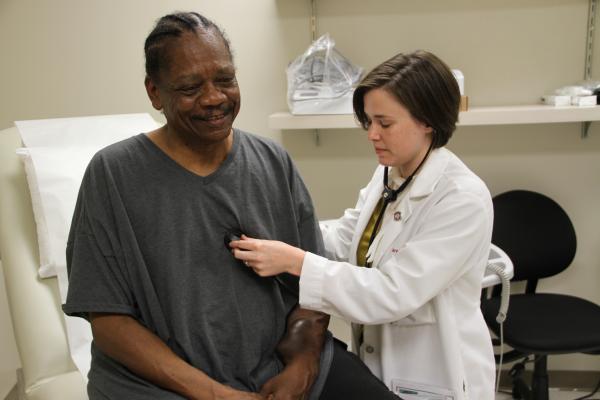
December 22, 2017 — To help streamline treatment of patients with heart failure and ensure the best possible patient outcomes, the American College of Cardiology published an expert consensus decision pathway for the optimization of treatment for patients with heart failure with reduced ejection fraction.
“Heart failure care has become increasingly complex with multiple medications that are evidence-based, several choices of devices and an array of process of care interventions,” said Clyde W. Yancy, M.D., MSc, MACC, chair of the writing committee. “A practical approach is needed to optimize care and improve outcomes.”
This document complements the 2017 ACC/AHA/HFSA Focused Update of the 2013 ACC/AHA Guideline for the Management of Heart Failure by addressing new medical therapies, prevention and comorbidities relevant to heart failure with reduced ejection fraction for which data are available. Despite new guideline statements, information voids exist, and a practical, consensus approach is needed for areas that have incomplete evidence. The writing committee identified and addressed ten pivotal issues that remain unresolved in the guidelines:
- How to initiate, add or switch therapy to new evidence-based guideline-directed treatments for heart failure with reduced ejection fraction.
- How to achieve optimal therapy given multiple drugs for heart failure including augmented clinical assessment that may trigger additional changes in guideline-directed therapy (e.g., imaging data, biomarkers and filling pressures).
- When to refer to a heart failure specialist.
- How to address challenges of care coordination.
- How to improve adherence.
- What is needed in specific patient cohorts: African Americans, the frail and older adults.
- How to manage your patients’ cost of care for heart failure.
- How to manage the increasing complexity of heart failure.
- How to manage common comorbidities.
- How to integrate palliative care and transition to hospice care.
“There has been a challenge with implementation of guidelines across the board,” Yancy said. “This document is a major step toward deploying aspects of implementation science as a means to improve adherence to evidence-based guideline-directed therapy.”
Each member of the writing committee—representative of all stakeholders—facilitated a separate survey with their own constituency to make certain that all needs were acknowledged and addressed, if possible. This treatment document is among the first of its kind to be open to public comment during peer review. Those public comments were given the same considerations in the revisions of this document as formal peer review. According to the writing committee, this public-comments process may be a new way of developing documents, in the hope that it will allow consensus to follow much more quickly than before.
The 2017 ACC Expert Consensus Decision Pathway for Optimization of Heart Failure Treatment: Answers to 10 Pivotal Issues About Heart Failure With Reduced Ejection Fraction will be published online in the Journal of the American College of Cardiology.
For more information: www.acc.org
Related Heart Failure Content
First Transcatheter Implant for Diastolic Heart Failure Successful
Surgery Could Reduce Frailty in Adults With Heart Failure
FDA Approves Pacemaker to Treat Central Sleep Apnea
Abiomed Receives FDA PMA Approval for Impella RP for Right Heart Failure
VIDEO: Predicting Right Ventricular Failure Using 2-D, 3-D and Strain Echo
Medtronic HeartWare HVAD System Approved for Destination Therapy


 February 03, 2026
February 03, 2026 









